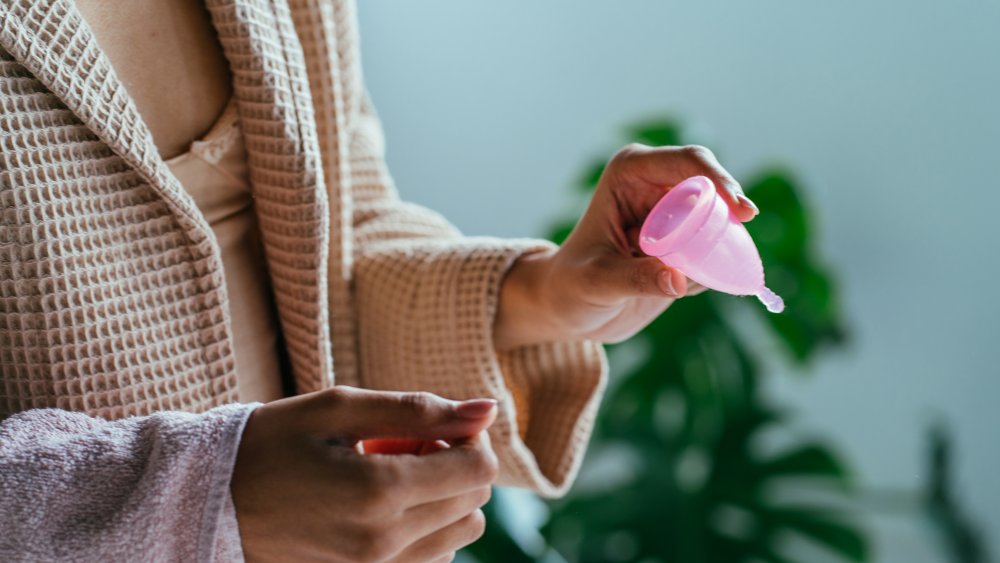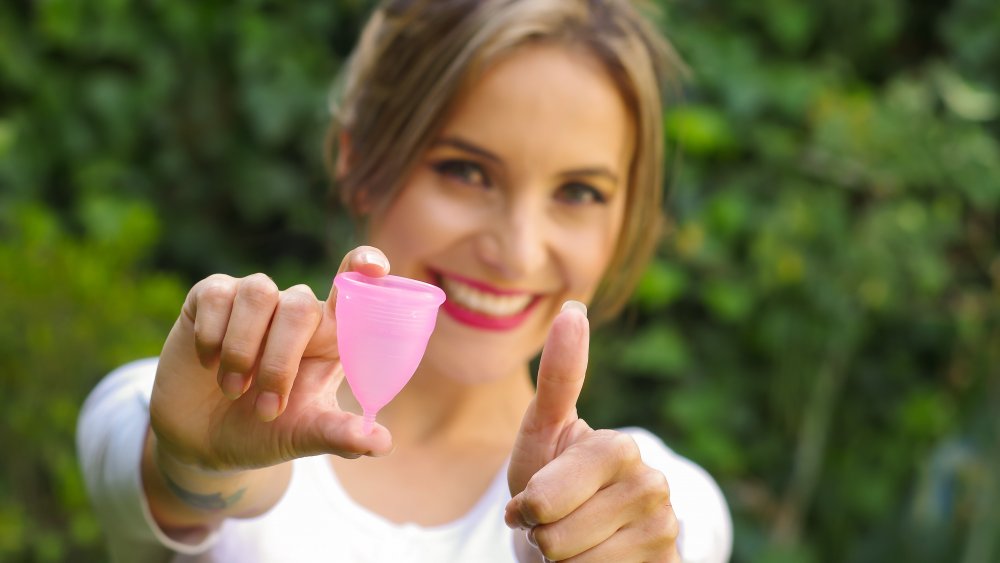What Really Happens When You Don't Clean Your Menstrual Cup
Many women have been forgoing tampons and pads in favor of the reusable menstrual cup when they have their periods. It's more environmentally friendly and takes up less space in your bathroom. Sounds good, right? But unlike the ease of disposable products, menstrual cups need to be cleaned properly and frequently in order to ensure they work correctly — and most importantly, to maintain your health and safety while using them (via Healthline). While infection is a rare complication of using a cup, it can happen if bacteria from your hands is transferred onto the cup and then into your vagina. For this reason, it is important not only to wash the cup itself, but to wash your hands thoroughly before removing and inserting the cup.
While it may be obvious that a cup would require cleaning between uses, it's actually very important you clean your cup thoroughly before its first use, too. Healthline says the best way to do this is as follows: Start by washing your hands and the cup with a mild, unscented cleanser (you want to avoid harsher soaps like antibacterial, scented, or baking soda-based cleaners. This is true every time you clean the cup). Next, boil a pot of water and let the cup sit in the boiling water for no more than 10 minutes. Make sure to keep an eye on it to prevent the rubber cup from sticking to the bottom of the pot and melting or burning. Then it's safe to use.
Avoid infection by cleaning your menstrual cup properly
Once you start using your menstrual cup, you may find you need to remove and empty it less frequently than changing tampons or pads, but it's still necessary to do so regularly and to make sure it's clean before reinserting. Cups can be worn up to 12 hours a time, but that will depend on your flow. So, when you are first getting used to it, it may be a good idea to check it more frequently (via WebMD). When you remove your cup, empty it into the toilet, and if you are at home or somewhere you have easy access to soap and water, you should wash the cup with warm water and gentle, unscented cleanser. If you are in a public bathroom, empty the cup and wipe it down with toilet paper, being especially careful to remove any traces of tissue before reinserting, and then make sure to clean it properly when you get home (via NPR).
At the end of your cycle, clean and store the cup properly to avoid deterioration of the cup and to ensure sanitization. Similar to what you did before your first use, you should boil the cup for a few minutes and then let it cool down and dry off completely before storing it in its pouch. Some brands sell sanitizing cups that can be filled with water, placed in the microwave with the menstrual cup inside, and boiled for 3 to 4 minutes.

